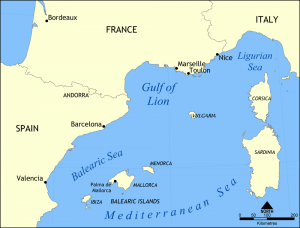Olivarian: Difference between revisions
From FrathWiki
Jump to navigationJump to search
No edit summary |
No edit summary |
||
| Line 122: | Line 122: | ||
#Nasals assimilate to the point of articulation of whatever consonant they precede. For example, /nɡ/ is realized as [ŋɡ]. | #Nasals assimilate to the point of articulation of whatever consonant they precede. For example, /nɡ/ is realized as [ŋɡ]. | ||
=Dialects= | =Dialects= | ||
{| class="wikitable" | |||
! colspan="9"| IPA !! colspan=2 | Consonants | |||
|- | |||
! Standard !! Dòssia !! Lenòmia !! Ucòsia !! N. Telcapòlia !! S. Telcapòlia !! Pecesamia !! W. Hurtòmia !! E. Hurtòmia !! Examples | |||
|- | |||
|} | |||
{| class="wikitable" | {| class="wikitable" | ||
! colspan="8"| IPA !! colspan=2 | Vowels | ! colspan="8"| IPA !! colspan=2 | Vowels | ||
Revision as of 04:09, 2 December 2010
| Vulgariano | |
| Pronunciation: | [vulgaɾiˈano] |
| Spoken in: | Vulgaria, Sea of Sardinia |
| Total speakers: | 80,000 |
| Language family: | Romance language |
| Distribution: | 
|
Vulgarian (or lingua vulgariana) is a Romance language spoken as a native language by about 80 thousand people in the Island of Vulgaria, in the Sea of Sardinia.
Vulgarian derives diachronically from Latin and is very conservative in its standard form. As in most Romance languages, stress is distinctive.
Writing system
Phonology
In this section, the phonology of the standard dialect is described.
Vowels
| Front | Back | |
|---|---|---|
| Close | i | u |
| Close-mid | e | o |
| Open-mid | ɛ | ɔ |
| Open | a | |
- While Vulgarian contrasts close-mid (/e o/) and open-mid (/ɛ ɔ/) vowels in stressed syllables, they are in free variation when unstressed.
Consonants
| Bilabial | Labio- dental |
Dental/ Alveolar |
Post- alveolar |
Palatal | Velar | |
|---|---|---|---|---|---|---|
| Nasal | m | n | ɲ | |||
| Plosive | p b | t d | k g | |||
| Fricative | f v | s z | ||||
| Affricate | (t)s (d)z | (t)ʃ (d)ʒ | ||||
| Approximant | j | w | ||||
| Trill | r | |||||
| Tap | ɾ | |||||
| Lateral | l | ʎ |
- Nasals assimilate to the point of articulation of whatever consonant they precede. For example, /nɡ/ is realized as [ŋɡ].
Dialects
| IPA | Consonants | |||||||||
|---|---|---|---|---|---|---|---|---|---|---|
| Standard | Dòssia | Lenòmia | Ucòsia | N. Telcapòlia | S. Telcapòlia | Pecesamia | W. Hurtòmia | E. Hurtòmia | Examples | |
| IPA | Vowels | ||||||||
|---|---|---|---|---|---|---|---|---|---|
| Standard | Ucòsia | N. Telcapòlia | S. Telcapòlia | Pecesamia | Dòssia | Lenòmia | Hurtòmia | Examples | |
| a | a | a | a | a | a | mama | |||
| ɐ̃ | ɑ̃ | ɨ | ângelo | ||||||
| a, ə | ə | a, ə | gallina | ||||||
| ɛ | jɛ | ɛ | ɛ | jɛ | je | pède | |||
| ɛ | ɛ | tèrra | |||||||
| ẽ | tèmpo | ||||||||
| e | e | e | e | censo | |||||
| e | e, ɛ | erro | |||||||
| e, i | ɨ | ə | gente | ||||||
| i | i, e | i | i | i, ə | i, e | i | primario | ||
| ɨ | înterrrogare | ||||||||
| i | i | i | amico | ||||||
| ĩ | cinqüe | ||||||||
| ɔ | wɔ | ɔ | ɔ | ɔ, ø, œ | wo | scòla | |||
| ɔ | còsta | ||||||||
| õ | ɔ̃ | cònta | |||||||
| o | o | o | o | ponto | |||||
| o | o, ɔ, ø | pollo | |||||||
| o, u | u | u, ə | o, u, ə | o, u | o | voluto | |||
| u | u | u | u | u, y | u | cubo | |||
| ũ | u | un | |||||||
Grammar
Sentences and word order
Verbs
Every Vulgarian verb belongs to one of three form classes, characterized by the infinitive ending: -are, -ere, or -ire— sometimes called the first, second, third and the fourth "conjugations", respectively.